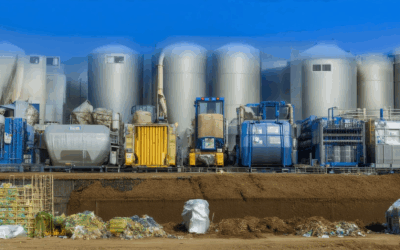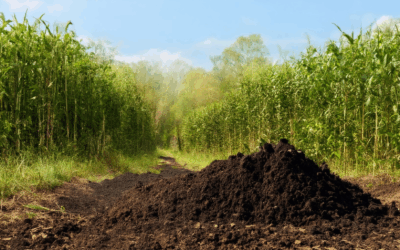Climate change remains one of the most pressing challenges facing humanity, necessitating innovative solutions to mitigate its effects. Among the emerging strategies, biochar-based climate action stands out as a promising approach to reduce carbon footprints and promote sustainable development. By harnessing the power of biochar, individuals and organizations can actively contribute to global efforts to combat climate change while aligning their initiatives with the United Nations Sustainable Development Goals (SDGs), particularly Goal 13. This article delves into how biochar-based climate action works, its potential to significantly reduce carbon emissions, and its role in fostering long-term sustainability through scalable practices and community engagement. From tracking progress with tools like the Biochar-Based Climate Action Tracker to exploring case studies and success stories, this exploration sheds light on the transformative impact of biochar-based strategies in achieving a greener future.
Key Takeaways
– Reduces Carbon Emissions Through Carbon Sequestration: Biochar acts as a long-term carbon sink, storing CO2 and lowering atmospheric concentrations.
– Mitigates Methane Emissions From Organic Waste: By stabilizing organic matter, biochar prevents methane release, a potent greenhouse gas.
– Enhances Soil Health and Agricultural Productivity: Biochar improves soil fertility and microbial activity, boosting crop yields and reducing reliance on synthetic fertilizers.
– Supports Sustainable Land Management Practices: Biochar-based strategies promote eco-friendly farming and waste diversion, aligning with sustainable land use goals.
– Improves Air Quality by Reducing Methane: Biochar reduces methane emissions from livestock, contributing to cleaner air and better public health.
– Promotes Efficient Water Retention and Biodiversity: Biochar enhances soil structure, improving water infiltration and supporting ecosystem health.
– Contributes to a Circular Economy by Managing Waste: Biochar transforms organic waste into a valuable resource, reducing landfill dependency and promoting sustainable practices.
– Drives Economic Growth and Job Creation: Biochar production can create local jobs, fostering economic development in rural areas.
– Aids in Achieving Carbon-Negative Practices: By storing carbon and reducing emissions, biochar supports carbon-negative agricultural systems.
– Strengthens Soil Resilience Against Climate Impacts: Biochar enhances soil structure, making agricultural systems more resistant to extreme weather events.

How Does Biochar-Based Climate Action Contribute to Reducing Carbon Footprints?
Biochar-based climate action plays a significant role in reducing carbon footprints through several mechanisms:
- Carbon Sequestration: Biochar acts as a carbon sink, storing carbon from organic waste and preventing it from entering the atmosphere as CO2. This reduces greenhouse gas emissions and contributes to combating climate change.
- Soil Health Improvement: By enhancing soil fertility, biochar increases agricultural productivity. Healthier soils absorb and retain more carbon, further mitigating climate impacts.
- Reduced Methane Emissions: Biochar production diverts organic waste from landfills, where it would decompose and release methane gas. This reduction in methane emissions supports climate goals.
- Waste Management Optimization: Biochar turns organic waste into a valuable resource, reducing landfill usage and the associated methane emissions. This circular economy approach minimizes environmental impact.
Pyrolysium advocates for biochar-based solutions as part of a broader strategy to promote sustainable living and eco-friendly technologies. By adopting biochar, individuals and communities can take proactive steps toward reducing their carbon footprint while supporting sustainable agriculture and waste management practices.
How Can Biochar-Based Climate Action Help Achieve Global Climate Goals?
Biochar-based climate action offers a promising pathway to address global climate challenges by promoting sustainable practices and reducing environmental impacts. Here’s how it contributes to achieving climate goals:
- Carbon Sequestration:** Biochar acts as a carbon sink, storing carbon dioxide from the atmosphere. This process helps mitigate the greenhouse effect and reduces CO2 levels.
- Reducing Greenhouse Gas Emissions:** By utilizing organic waste through pyrolysis, biochar production significantly decreases methane emissions, a potent greenhouse gas often released during waste decomposition.
- Improving Soil Health:** Biochar enhances soil fertility, making agricultural lands more productive. Healthier soils absorb more carbon, further aiding in climate regulation and food security.
- Sustainable Agriculture:** Integrating biochar into farming practices reduces reliance on chemical fertilizers, minimizing environmental harm and promoting eco-friendly crop rotation.
- Supporting Biodiversity:** Biochar amendments encourage beneficial microorganisms and plant growth, fostering biodiversity and ecosystem resilience.
Biochar-based initiatives align with international climate agreements and provide a scalable solution for reducing carbon footprints. By adopting these practices, we can collectively work towards a healthier planet and a sustainable future.
To learn more about biochar and its role in climate action, visit our website or explore related resources on sustainable living and eco-friendly technologies.

How Does Biochar-Based Climate Action Work?
Biochar-based climate action is a sustainable approach to addressing global warming by utilizing biochar, a carbon-rich material derived from organic waste through pyrolysis. Here’s how it works and why it’s essential for our planet:
- Carbon Sequestration: Biochar acts as a natural carbon sink, capturing and storing carbon dioxide from the atmosphere. This reduces greenhouse gas levels and contributes to lowering overall carbon emissions.
- Improving Soil Health: By adding biochar to agricultural soils, you enhance soil fertility and structure. It stimulates microbial activity, leading to better plant growth and increased resistance against pests and diseases. Healthier soils also store more carbon, amplifying the climate benefits.
- Water Retention and Erosion Control: Biochar improves soil’s ability to retain moisture, reducing runoff and erosion. This is particularly beneficial in arid regions, helping to combat desertification and support sustainable agriculture.
- Waste Management: Converting organic waste into biochar helps reduce landfill dependency and lowers methane emissions generated during decomposition. It offers a circular solution to resource management while mitigating environmental impacts.
- Air Pollution Mitigation: Biochar can naturally adsorb harmful pollutants in the air, providing an additional layer of environmental benefit alongside its role in carbon sequestration.
These benefits highlight the potential of biochar-based climate action in creating a healthier planet. To learn more about implementing biochar solutions, explore resources and tools available at Pyrolysium , your trusted source for sustainable living innovations.

How Does Biochar-Based Climate Action Reduce Carbon Emissions?
Biochar-based climate action effectively reduces carbon emissions through a combination of carbon sequestration and waste management practices. Here’s a breakdown of how it works:
- Carbon Sequestration:** Biochar acts as a carbon sink, storing carbon dioxide (CO2) from the atmosphere. When organic materials are converted into biochar through pyrolysis, the resulting material retains carbon for decades or even centuries, significantly reducing atmospheric CO2 levels.
- Methane Emission Reduction:** Biochar prevents organic waste from decomposing anaerobically, which would otherwise release methane, a potent greenhouse gas. By stabilizing organic matter, biochar helps reduce methane emissions and associated global warming.
- Stabilization of Greenhouse Gases:** Biochar enhances the stabilization of carbon in soil, thereby reducing the overall concentration of greenhouse gases in the atmosphere. This includes not just CO2 but also methane and nitrous oxide, which are potent contributors to climate change.
- Improved Soil Health:** Biochar improves soil structure and fertility, making agricultural systems more resilient. This leads to better crop yields and reduced reliance on synthetic fertilizers, further minimizing the carbon footprint associated with farming operations.
- Water Retention and Nutrient Cycling:** Biochar enhances water retention in soils, reducing runoff and erosion. It also promotes nutrient cycling, ensuring that nutrients are retained within ecosystems rather than lost to the environment, which indirectly reduces energy consumption and carbon emissions associated with resource extraction.
By integrating biochar production and application into sustainable practices, individuals and communities can play a vital role in combating climate change while promoting environmental health. Pyrolysium advocates for innovative solutions like biochar to create a more sustainable future, aligning with broader climate action goals and contributing to a healthier planet for generations to come.
How Does Biochar-Based Climate Action Support Sustainable Development Goals?
Biochar-based climate action plays a pivotal role in supporting sustainable development goals through its multifaceted benefits. By integrating biochar into agricultural practices, we can enhance carbon sequestration, improve soil health, and promote sustainable land management.
- Carbon Sequestration: Biochar acts as a stable carbon sink, reducing greenhouse gas emissions and contributing to global efforts to combat climate change. This aligns directly with the United Nations Sustainable Development Goal (SDG) 13, which focuses on climate action.
- Soil Fertility and Agricultural Productivity: Biochar enhances soil fertility, making lands more productive and resilient against environmental stressors. This supports SDG 15, which emphasizes life on land and sustainable agriculture.
- Waste Management and Resource Efficiency: Biochar production from organic waste reduces landfill dependency and promotes circular economy principles. This ties into SDG 12, which advocates for responsible consumption and waste management.
- Air Quality Improvement: Using biochar can reduce methane emissions from livestock, contributing to cleaner air and better public health. This effort supports SDG 3, which prioritizes good health and well-being.
- Water Retention and Biodiversity: Biochar improves water infiltration in soils, reducing drought risks and supporting biodiversity. This aligns with SDG 6, which focuses on water and sanitation, and indirectly with SDG 14, which protects life below water.
- Economic Empowerment and Job Creation: Biochar production can create local jobs, particularly in rural areas, fostering economic growth and social inclusivity. This supports SDG 8, which aims for decent work and inclusive growth.
By adopting biochar-based solutions, we can collectively advance multiple SDGs while addressing pressing global challenges. Explore how Pyrolysium’s innovative approaches can contribute to these goals and learn more about our resources and initiatives. Learn more .

How Does Biochar-Based Climate Action Help Achieve Long-Term Sustainability Goals?
Biochar-based climate action plays a pivotal role in achieving long-term sustainability goals by offering a natural and effective solution to combat climate change. Here’s a breakdown of how it contributes:
- Carbon Sequestration: Biochar acts as a carbon sink, storing carbon from organic waste and preventing it from entering the atmosphere. This reduces greenhouse gas emissions and supports carbon-negative practices.
- Soil Health Improvement: By adding biochar to agricultural soils, fertility and microbial activity increase, enhancing crop yields and reducing the need for synthetic fertilizers. Healthier soils also better absorb and store carbon.
- Waste Management: Biochar production transforms organic waste into a valuable resource, reducing landfill dependency and promoting a circular economy. This minimizes methane emissions from landfills and diverts waste from incineration.
- Climate Resilience: Biochar enhances soil resilience against extreme weather events, making agricultural systems more robust and capable of adapting to climate changes.
Biochar is particularly appealing because it not only addresses climate change but also fosters sustainable agricultural practices. Unlike traditional methods, biochar-based systems can scale effectively, making them accessible for various regions and applications.
Pyrolysium advocates for biochar as part of a broader strategy to promote sustainable living and eco-friendly technologies. While there are other carbon-negative practices, biochar stands out due to its versatility and positive environmental impact.
For more information on how biochar can contribute to your sustainability goals, visit our website and explore our resources on sustainable living and eco-technologies.




0 Comments